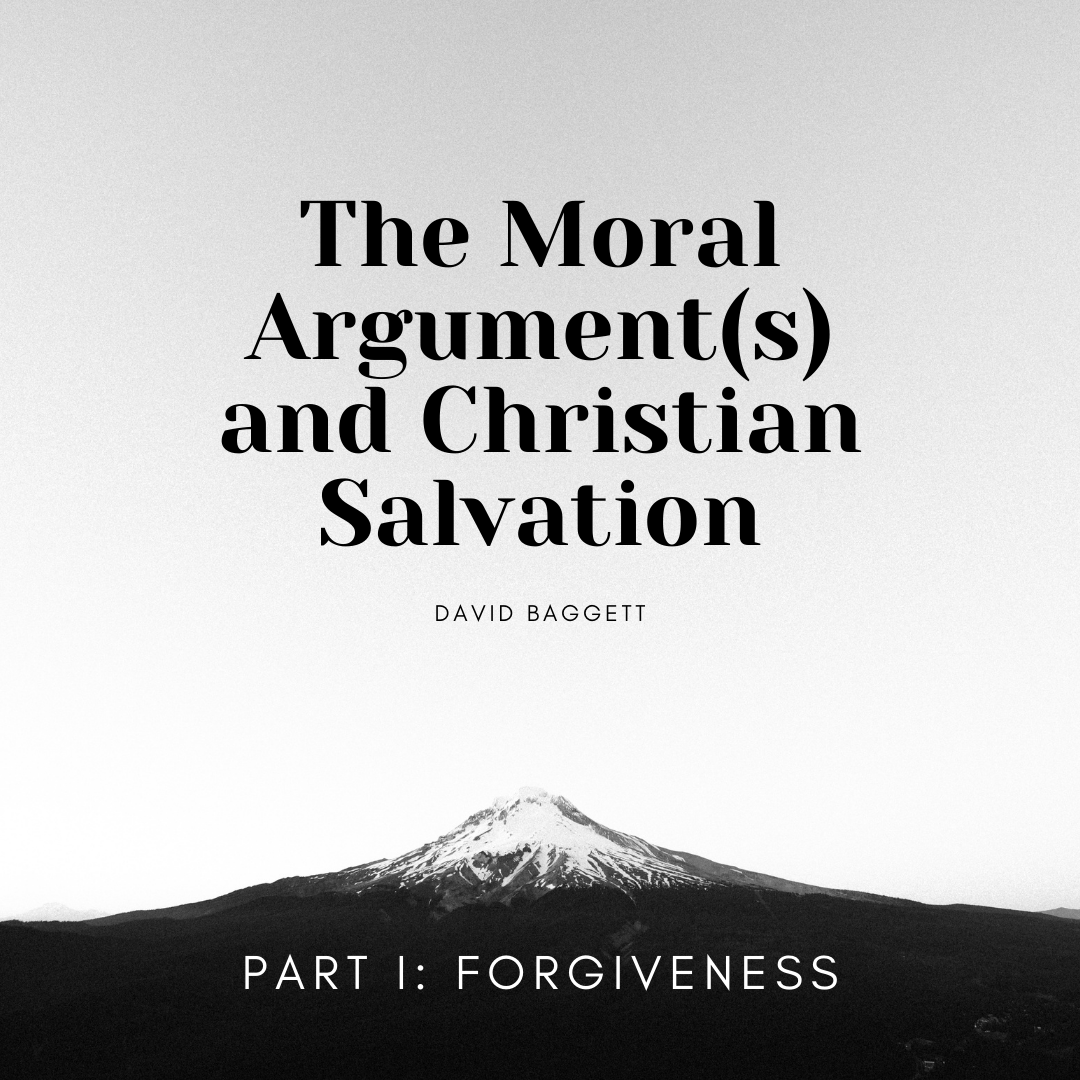Over the next three installments, we will extend the discussion of moral apologetics and Christian theology by connecting the moral argument—particularly one version of it—with three deep moral needs we as human beings display: our need to be forgiven, our need to be changed, and our need to be perfected. Each of these profoundly existential needs we possess as human beings corresponds to an important aspect of Christian salvation.
When I say “the moral argument,” I’m using that phrase in a general sort of way. In truth there’s more than one moral argument. There’s a whole range of them. If you prefer, you can think of one moral argument with a number of different parts. At least most of the time that works pretty well since the different variants of the argument tend to be rather consistent with one another. The specific formulation of the moral argument we will consider today is what John Hare calls the “performative” version or, for reasons that will become clear, an “argument from grace.”
You might remember in Book 1 of Mere Christianity C. S. Lewis says two things are at the heart of our understanding of reality: First, there’s a moral law, and second, we all fall short of it. On his claim we can start to build a performative moral argument. There is a moral standard that’s objective and universal. It’s binding and authoritative on us, but we invariably fall short of meeting it. This results in the “gap” between the best we can do and what morality requires. And this gap needs addressing. We find ourselves as having fallen short, and we know it.
How do we know we’ve got a moral problem on our hands? One way, you might say, is by our moral sense, which even plenty of secular thinkers recognize as in some way significant. Take Charles Darwin, for example, who thought it’s our moral sense that best distinguishes human beings from the animals. Indeed, he begins chapter 5 of Descent of Man with this admission: “I fully subscribe to the judgment of those writers who maintain that of all the differences between man and the lower animals, the moral sense or conscience is by far the most important.” He even says he considers the moral sense, our sense of “ought,” to be “humankind’s finest quality.” Elsewhere in the same book Darwin casts both “ought” and “disinterested love for all living creatures” as the noblest attribute of man.
Darwin intuitively felt the importance of morality, even if he ended up embracing a deflationary analysis of its import. Similarly Sigmund Freud. To Freud’s thinking, the problem of guilt is so severe that he diagnosed it in Civilization and Its Discontents as the single most important development of civilization—a problem so acute that it is the thing most responsible for our unhappiness. Perhaps what helps explain Freud’s conviction is that his analytic work found that nearly every neurosis conceals an unconscious sense of guilt, which in turn “fortifies the symptoms by making use of them as punishment.”
For both Darwin and Freud, the phenomenon of guilt was both interesting and important, even revelatory. Recall their depictions: Darwin thought our capacity for experiencing the moral sense and a painful conscience is by far the most important distinction between us and the animals; our sense of ought and disinterested love for all creatures, he believed the noblest virtue of man. And Freud took the problem of guilt as the single most important development of civilization. But they mistook its import, I suspect, embracing reductionist analyses and taking guilt itself as the essential problem, rather than the deeper malady of which guilt is but the symptom. Rightly construed guilt is semiotic, pointing beyond itself.
That we intuitively sense there to be a moral standard that we fall short of leaves us with a condition of guilt in need of fixing. And if we take our feelings of guilt as more than mere feelings, and something like a real objective condition of guilt, we are left wondering if there’s a solution. We need forgiveness for having fallen short of the moral standard—and not just falling short in the past, but continuing to fall short all the time. Forgiveness is a basic and chronic existential human need.
I rather doubt Freud was wrong about guilt creating quite a bit of unhappiness, which makes it understandable that our secular friends see the need to deal with it, usually by trying to deny that we are really that guilty. Unaddressed guilt eats us up. And sometimes people do have an overactive superego and feel guilty for all sorts of things that they’re not really guilty of. But at other times, most of us intuitively recognize, our guilt isn’t a mistake, but a real insight into ourselves. We don’t need our guilt explained away, in those cases, but taken away, forgiven.
And of course this is one way that the moral argument serves as the perfect pathway to the gospel of Christ—indeed we have fallen short, and are in need of forgiveness. And God offers us that forgiveness through the death and resurrection of Christ. Not only does God offer us forgiveness, but we as his forgiven children can extend forgiveness to others. This is why it’s so imperative we maintain a stance of forgiveness toward our neighbors, modeling the grace God has shown us. And of course many will recognize that all of this broaches the whole theological topic of justification.
So you might wish to approach this philosophically—talking about guilt and our need for forgiveness, and then showing how philosophy leads you to the brink of theology. Or start with a theological discussion of justification, and then show how it comports with what we learned from our moral experience and what we might call general revelation. Or take the deliverances of theology like justification and use insights from moral apologetics to spell out part of what’s going on—that’s doing philosophical theology.
However we approach it, the moral argument, from this angle, functions as an ideal way to introduce the good news of the gospel. We have a problem, yes, but God offers the solution.
In the next installment we will discuss the moral argument and moral transformation.






















